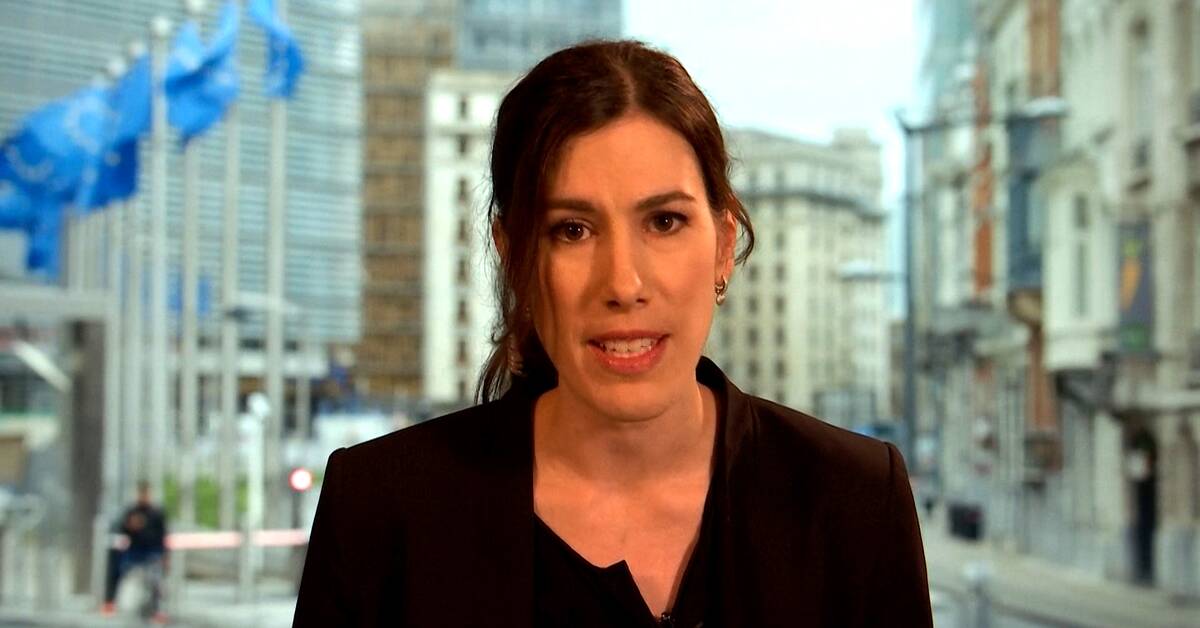The last time I was in Syria was 2020, a country where I spent most of my summer holidays growing up.
On the way from the airport, we pass a bombed-out Harasta where the fighting has ended.
Some people think it was better when the bombs fell, then they could at least afford to live.
In the car, I become aware that you buy petrol with the help of ration tickets.
An uncle from the village has collected a pile of relatives and friends to be able to pick me up.
Severe sanctions against Syria have been in force since 2011. Several of them are reflected in the sanctions now being imposed on Russia.
International foreign exchange reserves are frozen, Visa and Mastercard are blocked and there are restrictions on exports, imports and investments, for example.
But of course, for example, the destruction of the war also leaves its mark on the economy.
"No one changes white anymore"
The first thing I need is cash, but you no longer go to the exchange office with a bundle of dollars, as you used to.
The state has decided that the exchange rate should be one dollar against 700 Syrian pounds, but in reality the pound is much weaker.
It takes about twice as much to buy something worth a dollar.
"It's their attempt to strengthen the lira.
So no one changes white anymore because then you lose your money ", I get explained to me.
A teacher can change.
Not because she's a gangster, but because supply and demand govern the black market.
The teacher has just sold an apartment and got paid in bags full of banknotes.
"If you put them in the bank, you do not know what happens to the money," she says.
"Lebanese wine bottles dust on the shelves"
In the neighborhood store I buy yogurt, sweets and chewing gum.
The banknotes are broken at the edge and taped in the middle.
Sometimes you can leave them in two pieces.
The clerk understands that I live abroad when I think the biscuit package she hands me is a gift.
"Instead of a 50 note," she says, stuffing it in the bag with some banknotes.
During war, biscuits can be worth more than money.
What can be produced within the country is more often within reach.
Arak (a licorice-flavored spirit similar to ouzo) is served at gala dinners while Lebanese wine bottles dust off store shelves.
Now it is important to make money in foreign currency if you want something for the money, or have a family abroad who can send money home.
Parents of young children who are engineers, doctors and teachers can not be sure of being able to afford both food and diapers on their own.
My cousin invites everyone to falafel.
A sandwich costs almost a thousand pounds.
I remember when it cost ten.
Still, people continue to bid.
"An aunt tells the story of a desperate father who stole from his daughter"
The talk over brewed coffee and baklava has never been about jobs, but about what is considered important;
people.
But they no longer talk about who is getting married this summer, about what dress the bride wore or even about who gave the most expensive gifts.
People can not afford weddings and the stories are new.
An aunt tells the story of a desperate father who stole from his daughter.
After less than a month, the uncle who picked me up at the airport drives me back to Damascus.
He bought the car at the beginning of the war and while it was worn down on bad roads, it has also developed into an unexpected economic asset.
Imports of new cars have been banned, as has trade in used cars, in an attempt to promote domestic production and preserve the country's foreign exchange reserves.
The uncle states that this has caused his car, contrary to the ordinary order, to rise in value since he bought it.

